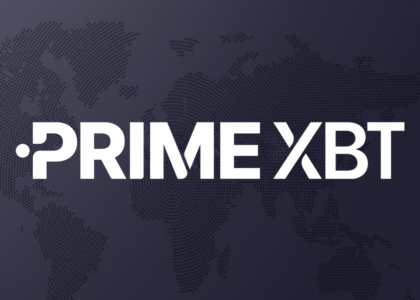Introduction
Cryptocurrency exchanges are the backbone of the digital asset market, allowing users to buy, sell, and trade various cryptocurrencies. With the rise of Bitcoin (BTC), Ethereum (ETH), and thousands of altcoins, crypto trading platforms have become essential for investors. Choosing the best crypto exchange is crucial for security, ease of use, and profitability.
In this guide, we will cover everything you need to know about cryptocurrency exchanges, including how they work, their types, top exchanges in 2025, security measures, trading strategies, and future trends. If you are looking for a secure, high-liquidity, and low-fee crypto exchange, read on to make an informed decision.
What is a Crypto Exchange?
A cryptocurrency exchange is an online platform where users can trade digital assets. It functions as a marketplace, connecting buyers and sellers while providing essential services like order matching, price discovery, and secure storage. Crypto exchanges can be centralized or decentralized, each offering different levels of security, speed, and regulatory compliance.
Types of Crypto Exchanges
1. Centralized Exchanges (CEX)
Centralized crypto exchanges (CEXs) are operated by a company or organization that acts as a middleman in trades. They provide high liquidity, fast transactions, and user-friendly interfaces.
Pros:
- High liquidity and trading volume
- Easy-to-use platforms
- Advanced trading tools
Cons:
- Higher risk of hacks
- Requires KYC (Know Your Customer) verification
- Centralized control over funds
Popular centralized crypto exchanges include Binance, Coinbase, Kraken, and KuCoin.
2. Decentralized Exchanges (DEX)
Decentralized exchanges (DEXs) operate on blockchain technology, allowing users to trade directly without intermediaries. These platforms prioritize privacy, security, and control over funds.
Pros:
- No need for KYC verification
- Enhanced security and privacy
- Reduced risk of exchange hacks
Cons:
- Lower liquidity compared to CEXs
- Complex user interface
- Slower transactions due to blockchain confirmations
Popular decentralized exchanges include Uniswap, PancakeSwap, and SushiSwap.
3. Hybrid Exchanges
Hybrid exchanges combine the best features of CEXs and DEXs. They offer high security while maintaining good liquidity and speed.
Examples:
- Nash Exchange
- DeversiFi
- Qurrex
How to Choose the Best Crypto Exchange
When selecting a cryptocurrency exchange, consider these factors:
- Security Measures: Look for platforms with two-factor authentication (2FA), cold storage, and encryption protocols.
- Liquidity: Higher liquidity ensures smoother transactions and better price execution.
- Fees and Charges: Compare trading fees, withdrawal charges, and hidden costs.
- Supported Coins: Ensure the exchange supports major cryptocurrencies like BTC, ETH, USDT, and other altcoins.
- User Experience: Choose a platform with an intuitive interface and reliable customer support.
- Regulatory Compliance: Opt for regulated exchanges to avoid legal issues and scams.
Top Crypto Exchanges in 2025
Here are the best crypto trading platforms in 2025:
1. Binance
- Largest exchange by trading volume
- Supports over 500 cryptocurrencies
- Low trading fees and high liquidity
2. Coinbase
- Best for beginners
- Strong security measures
- Easy fiat-to-crypto conversions
3. Kraken
- Advanced trading tools
- High security and compliance
- Great for futures and margin trading
4. KuCoin
- Supports a wide range of altcoins
- Low trading fees
- Offers staking and lending services
5. Uniswap
- Best decentralized exchange (DEX)
- Supports Ethereum-based tokens
- No registration required
Crypto Exchange Security: How to Protect Your Funds
Security is the most critical factor when using a crypto trading platform. Follow these steps to keep your funds safe:
1. Enable Two-Factor Authentication (2FA)
Most exchanges offer 2FA via Google Authenticator or SMS to add an extra layer of security.
2. Use Strong Passwords
Create complex passwords and update them regularly to prevent unauthorized access.
3. Store Funds in Cold Wallets
Avoid keeping large amounts of cryptocurrency in exchange wallets. Use hardware wallets like Ledger or Trezor.
4. Be Wary of Phishing Scams
Never click on suspicious links or provide login credentials outside the official exchange website.
5. Choose Regulated Exchanges
Trading on regulated cryptocurrency exchanges ensures better security and compliance with legal standards.
Trading Strategies for Crypto Exchanges
To maximize profits on a crypto trading platform, adopt these trading strategies:
1. Day Trading
- Buy and sell cryptocurrencies within a day to profit from price fluctuations.
- Requires technical analysis skills and fast decision-making.
2. Swing Trading
- Holds crypto for a few days or weeks to capitalize on short-term trends.
- Less stressful than day trading but requires market analysis.
3. Scalping
- Focuses on small, frequent profits.
- Requires a high-speed trading platform and low fees.
4. Dollar-Cost Averaging (DCA)
- Invest a fixed amount in crypto at regular intervals.
- Reduces the impact of market volatility.
Future of Crypto Exchanges
The cryptocurrency exchange industry is rapidly evolving with new trends:
1. Regulation and Compliance
Governments worldwide are introducing crypto regulations to ensure safer trading environments.
2. AI and Automation
AI-driven trading bots and automated strategies are revolutionizing crypto trading.
3. Expansion of Decentralized Finance (DeFi)
More users are shifting to DeFi exchanges due to enhanced security and transparency.
4. Integration of NFTs
Some crypto exchanges now offer NFT marketplaces, allowing users to trade digital assets seamlessly.
5. Institutional Adoption
Large financial institutions are entering the crypto space, boosting liquidity and credibility.
Conclusion
Crypto exchanges play a vital role in the cryptocurrency market, providing access to digital assets for traders and investors. Choosing the best cryptocurrency exchange requires careful consideration of security, fees, liquidity, and supported assets. Whether you prefer a centralized crypto exchange (CEX) like Binance or a decentralized exchange (DEX) like Uniswap, prioritizing security and efficiency is crucial.
As the crypto industry continues to grow, staying updated on the latest trends and security measures will help you trade safely and profitably. If you’re looking for a secure, low-fee crypto trading platform, research thoroughly and choose wisely to make the most of your crypto investments.





